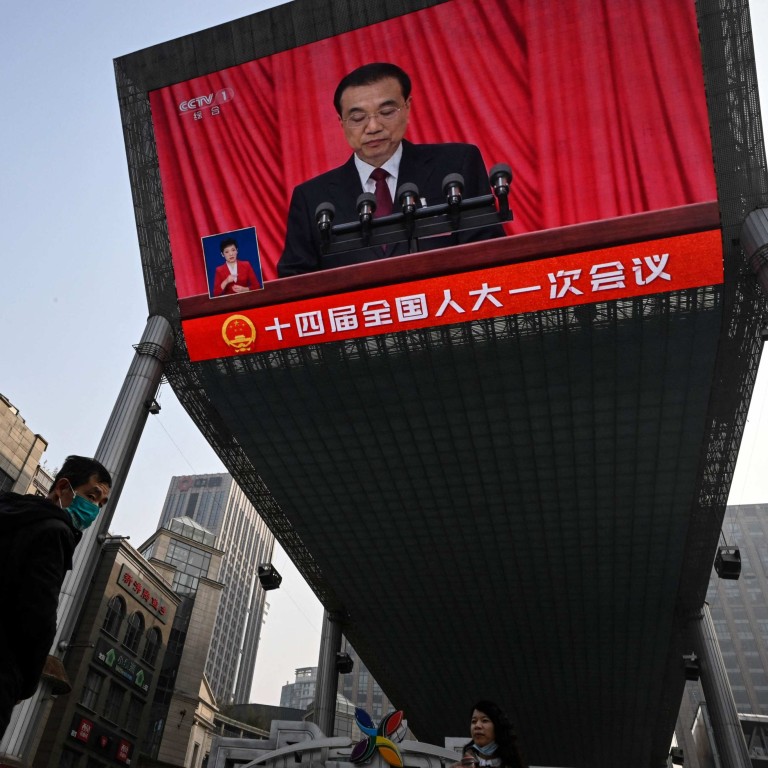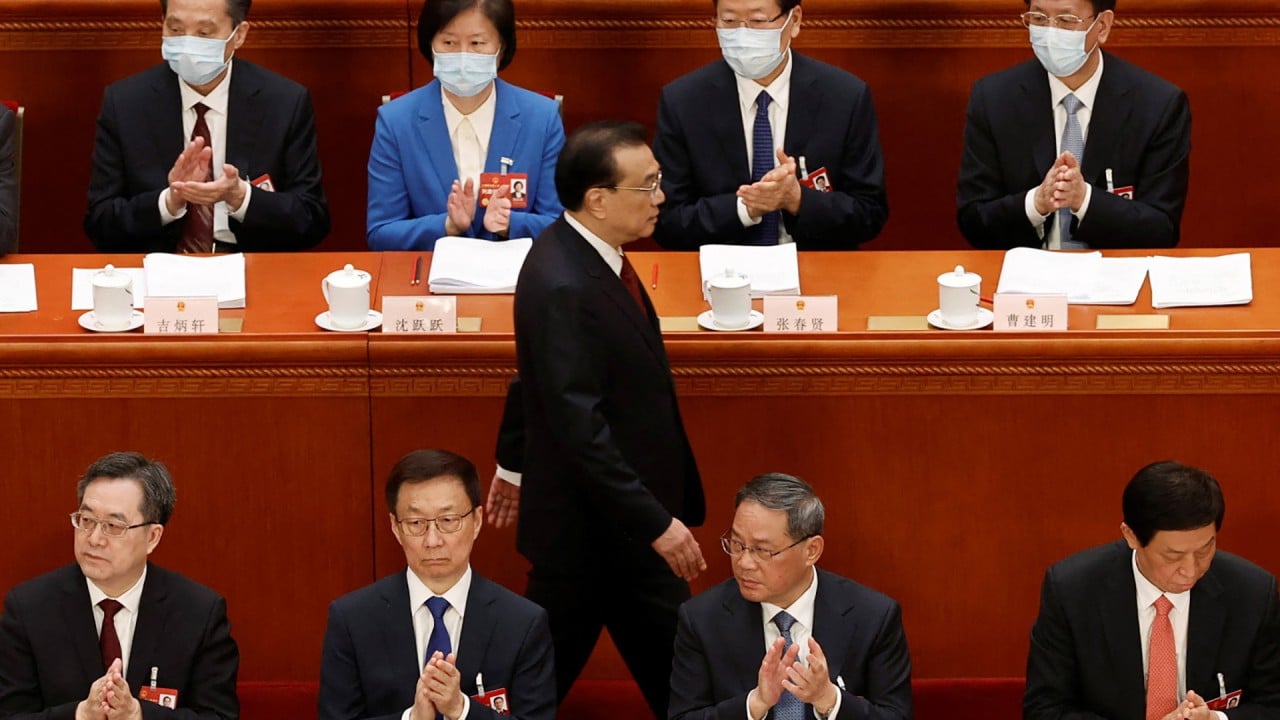
China’s ‘two sessions’ 2023: Premier Li Keqiang bows out with appeal for economic recovery
- Li’s final government work report aims to chart a steady course for jobs, inflation and growth
- To get there, the country will need to deal with a raft of domestic and external challenges, he says
Among them is economic growth of around 5 per cent; a consumer price index increase of around 3 per cent, and the creation of 12 million urban jobs.
The key theme throughout Li’s speech was “stability”.
“This year, it is essential to prioritise economic stability and pursue progress while ensuring stability,” he told the thousands of NPC deputies and members of the Chinese People’s Political Consultative Conference (CPPCC) in the Great Hall of People.
The gathering is the first big political meeting since China abandoned zero-Covid but there was no explicit reference to the strategy – even though the restrictions were blamed for helping keep China’s GDP growth to 3 per cent last year.
Instead, Li highlighted how the cabinet weathered economic headwinds such as “notable high unemployment” for some time, sluggish consumption and a significant drop in land revenue in the budget.
Koh King Kee, president of the Centre for New Inclusive Asia, a non-governmental think tank in Malaysia, said Beijing’s cautious approach to its targets was understandable.
“China’s prolonged zero-Covid policy has caused severe damage to the economy and affected people’s willingness to spend,” Koh said.
“It is therefore unsurprising that economic recovery was the main focus of the report – through pursuing economic progress and maintaining social stability, with particular emphasis on creating employment for young graduates and providing assistance to small businesses.”
Caution was also evident in the annual budget released by the Ministry of Finance on Sunday.
Swaran Singh, visiting professor at the University of British Columbia’s department of political science, noted that China’s increase in defence spending was still the highest since 2019.
“[It] reflects China’s assessment of the continuing Ukraine crisis further exacerbating the challenges and tensions in great power relations,” said Singh, who is also a professor at Jawaharlal Nehru University in New Delhi.
Expenditure on diplomacy will grow by 12.2 per cent from the previous year; funding for maintaining public safety will rise 6.4 per cent; while the budget set aside for education and scientific and technological development will increase by 2 per cent.
Koh said the increases for technology were linked to China’s rivalry with the United States.
“China’s high-quality economic development will be driven by technological innovation. As China aims to reduce its technological dependence on the US, in view of the latter’s relentless suppression of Chinese hi-tech companies, it is expected to continue increasing its spending on scientific research and technology,” he said.
The government will also set aside 132.8 billion yuan (US$19.25 billion) for grain and oil reserves, a rise by 13.6 per cent from the previous year.
Alfred Wu, an associate professor at the Lee Kuan Yew School of Public Policy at the National University of Singapore, said the significant increase in oil and grain reserve spending was partly a result of external tension.
“[Increased spending on grain reserves] reflects Xi’s belief that the Chinese people’s meals cannot be blocked by the Americans and others. To ensure food and energy security, or to ensure that China can be self-sustained, is largely Xi’s thinking,” Wu said.
While not referring to the US directly, Li did say China was facing a raft of external challenges this year.
“Uncertainties in the external environment are on the rise. Global inflation remains high, global economic and trade growth is losing steam, and external attempts to suppress and contain China are escalating,” he said.
He reiterated that Beijing would fight “separatism” in Taiwan, while promoting “the peaceful development of cross-strait relations”.
He also highlighted Beijing’s efforts to attract foreign investment, to further integrate China in the global economy through global trade and investment treaties, and to promote trade.
China’s Li Keqiang renews call for economic reform in last days in office
At home, there was much to be done to deal with the many domestic challenges this year.
“The foundation for stable growth needs to be consolidated, insufficient demand remains a pronounced problem, and the expectations of private investors and businesses are unstable,” Li said.
“Micro, small and medium-sized enterprises and the self-employed face multiple difficulties in business and production operations. The task of maintaining employment stability is challenging, and the budgetary imbalances of some local governments are substantial.”
He said the government would step up protection of the rights of private businesspeople and create a more favourable environment for the private sector.
“We should, in accordance with the law, protect the property rights of private enterprises and the rights and interests of entrepreneurs. We should encourage and support the private sector and private businesses to grow and expand and support MSMEs and self-employed individuals in business development,” Li said.
The private sector is in need of assurance – business confidence waned amid the zero-Covid restrictions, talk of official preference for the public sector, and the Communist Party’s vague call for “common prosperity”.
Li did not mention common prosperity, though there was no sign that the policy would be scrapped.
There was also no sign that Li’s call for an economy of street stalls or small businesses to create jobs would come back to life.
Li suggested it in 2020 but it soon fizzled out, underlining his role as more of an administrator implementing Xi’s policies.
“Li’s reports are rarely very outstanding and are rarely overanalysed. He is a bureaucrat,” Wu said.



